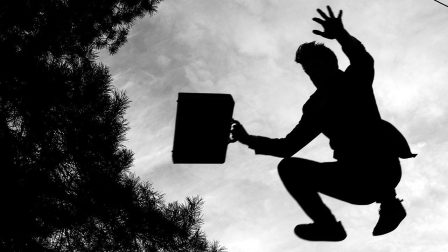Five Pro Tips To Nail An Interview And Land Your Dream Job
It’s a great time to be looking for a job. There were 5.5 million jobs open last month across sectors from technology to health care, retail, and manufacturing. Couple that with the capability to search and apply for jobs online and via mobile and candidates now have more control over the job-seeking process than ever.
But no matter how good the job market is you still have to impress your potential employer in the interview. Luckily there are plenty of ways to prepare, in addition to brushing up on the company, their competition, and how you can best fill their needs. Here are a few tips from the pros to ensure you’ll make the cut.
1. Make A Good Impression In The First Five Minutes
According to a recent CareerBuilder poll, half of employers surveyed said they can size up a candidate within the first five minutes of an interview and determine whether they’d be a good fit for the job.
That’s not a lot of time to mine the depths of a person’s experience and education. So that means clothes and grooming need to be on point. What to do when traditional advice to dress for the job you want doesn’t apply to some more casual company cultures? Do some digging on social media and see what existing staffers are wearing and dress slightly more formal (you can likely still forego the full suit) Consider this: A study published in the Human Resource Development Quarterly conducted by Joy V. Peluchette and Katherine Karl found: “Respondents felt most authoritative, trustworthy, and competent when wearing formal business attire but friendliest when wearing casual or business casual attire.”
Read More: The Surprising Productivity Secrets Hidden In Your Clothes
2. Don’t Forget About Your Body Language
Your clothes can help you signal confidence and warmth during those critical first five minutes. But your body language can be a deal breaker if you’re not paying attention. A Harris Poll of hiring managers revealed that most (67%) agreed failure to make eye contact was the biggest problem. Thirty-nine percent said not smiling would derail the candidate’s chances.
Other problematic physical behaviors included:
- Playing with something on the table
- Having bad posture
- Fidgeting too much in their seats
- Crossing their arms over their chests
- Playing with their hair or touching their faces
- Having a weak handshake
- Using too many hand gestures
- Having a handshake that was too strong
Read More: These are the Biggest Mistakes People Make During Interviews
3. Don’t Avoid Talking About Your Weaknesses
It’s practically inevitable that interviewers ask candidates to discuss their strengths or weaknesses—or both. This is tricky verbal territory because no one wants to sound arrogant or inauthentic. The latter is often the case when the applicant couches a weakness as a strength such as “I’m very hard on myself.”
Try to be honest, Russell Reynolds Jr. writes in his book Heads: Business Lessons From an Executive Search Pioneer. He recommends offering a response that shows you’ve done serious self-reflection to prepare for this question and can admit responsibility and accept constructive criticism.
For strengths, he advises, “Avoid clichés or generalities; offer specific evidence. Describe new ways these skills could be put to use in the position you are being considered for.” As for weaknesses, “Be confident in the fact that this weakness does not make you any less of a great candidate, and show that you are working on this weakness and tell the recruiter how,” Reynolds suggests.
Read More: Five Interview Myths Debunked
4. Embrace Asking Questions
When the interviewer turns the tables and asks if you’d like to ask them any questions, the temptation might be to cut and run and hope you’ve left a good impression. However, that’s not the best course of action according to several experts.
Michele Mavi, director of content development, internal recruiting, and training for the hiring agency Atrium Staffing, says, “Having no questions shows not only a lack of interest in the role or the company, but also a total lack of understanding of what the interview process is all about.”
So use the time to gain some intel on how your interviewer likes working for the company. Mavi adds, “Asking questions pertaining to what needs to be achieved, or what has made others succeed or fail in the role, as well as questions about how the department fits into the larger whole of the organization, are all great.”
Read More: How You Should Answer the 10 Most Common Interview Questions
5. Don’t Forget To Say Thank You
After you shake hands and leave the building, you’re still in contention for the job. So to keep the good feelings flowing your way, don’t forget to pen a note of thanks to your interviewer. Just remember that this is not a simple expression of gratitude, it’s all part of a business arrangement that stands to benefit you and the company.
With that in mind, don’t just thank the interviewer for their time, or use a boilerplate note you found on Google. Keep it brief, but add a mention of whatever skill set you discussed that can be valuable to the organization and touch on a shared interest (that you should have discovered during your chance to ask questions).
Finally, double check your spelling, especially of the person’s name. If you’re unsure, look them up on the company’s website. Next time, make it a practice to exchange business cards during the interview. As veteran recruiter Donna Svei notes, “No one walks around with business cards that misspell their name. No one.”
Fast Company , Read Full Story
(26)













